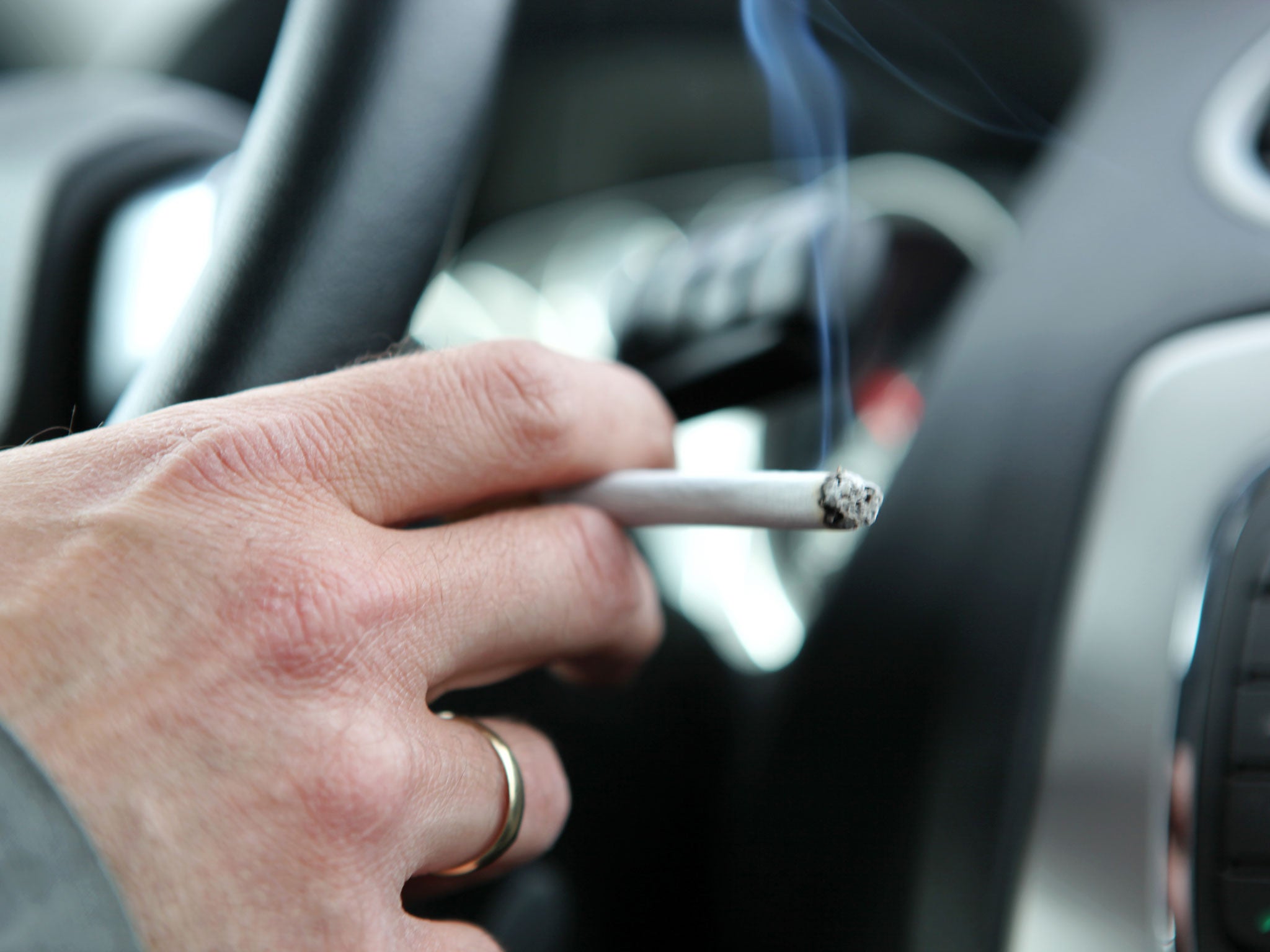The law on smoking in cars makes little practical sense
Ultimately, this is one law that ought to face the silk cut

Your support helps us to tell the story
From reproductive rights to climate change to Big Tech, The Independent is on the ground when the story is developing. Whether it's investigating the financials of Elon Musk's pro-Trump PAC or producing our latest documentary, 'The A Word', which shines a light on the American women fighting for reproductive rights, we know how important it is to parse out the facts from the messaging.
At such a critical moment in US history, we need reporters on the ground. Your donation allows us to keep sending journalists to speak to both sides of the story.
The Independent is trusted by Americans across the entire political spectrum. And unlike many other quality news outlets, we choose not to lock Americans out of our reporting and analysis with paywalls. We believe quality journalism should be available to everyone, paid for by those who can afford it.
Your support makes all the difference.Libertarians were outraged last October when the Government introduced a ban on smoking in private cars carrying passengers aged under 18. They may have been delighted therefore at the news yesterday that in the subsequent three months, only six warnings were issued and not a single driver was fined for flouting the law.
It turns out that bureaucratic confusion has resulted in the police being responsible for stopping drivers, while local authorities have the power to issue fines. Rarely, it seems, do the twain meet, which means in practice that the law is not being enforced.
Few would dispute, of course, that smoking around children is bad for their health. Adults can choose to disregard the risks of lighting up; they shouldn’t effectively force their second-hand smoke on young lungs.
Yet the seeming inadequacy of the ban’s enforcement provides an opportunity to consider anew whether the law is really, in any event, the best means of challenging such behaviour.
After all, the role of the state in limiting otherwise acceptable actions must be used judiciously. The general ban on smoking in enclosed workplaces was based not only on good evidence but in the context of a contractual relationship between employers and employees; it was also enforceable. The step to widen the ban to in-car puffing clearly impacts on family life – the motives are understandable but legislation feels heavy handed.
The Department of Health responded to the revelations by suggesting that the ban’s success should be measured by changing behaviour, not enforcement action. But the law is a blunt instrument; to regard it as a quick fix to disagreeable attitudes is remarkably blasé.
Smoking in cars full of children ought to be socially unacceptable. But illegal? Ultimately, this is one law that ought to face the silk cut.
Join our commenting forum
Join thought-provoking conversations, follow other Independent readers and see their replies
Comments